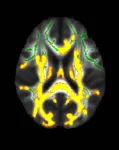(Press-News.org) Gambling addiction can increase the risk of long-term sick leave for several years, according to a new study published in Psychological Medicine. Researchers from Karolinska Institutet behind the study point to the need to detect people with gambling addiction in time to avoid financial and health problems.
Gambling addiction is a psychiatric condition characterized by prolonged and problematic gambling that leads to negative financial, health and social consequences. 1.3 percent of the Swedish population, corresponding to 105,000 Swedes, have gambling problems or an increased risk of gambling problems, but the number of unreported cases is believed to be much higher. The condition has been described as a "hidden addiction" that can go on without the knowledge of the environment.
The research team, with expertise in addiction, gambling, epidemiology, and sickness absence, used several linked national registers to study 2,830 working-age individuals between 19 and 62 who had been diagnosed with gambling addiction and examined their sickness absence over six years. They then compared these data to an equivalent group of 28 300 people without a gambling addiction diagnosis.
"Thanks to the extensive data in the different registers, we were also able to control for a range of factors that are linked to both gambling addiction and sickness absence, including physical and mental health, gender, age, length of education, and how densely populated area the individual lives in," says the study's last author Yasmina Molero, researcher at the Department of Clinical Neuroscience, Karolinska Institutet.
The researchers found that people with gambling addiction had an 89% higher risk of being on long-term sick leave, which means more than 90 days per year during the year they were diagnosed.
"This is particularly worrying as this group often has a history of mental health problems and the ability to work is important for mental and financial recovery," says the study's first author Viktor Månsson, researcher at the same department.
The study also shows that the risk is unevenly distributed. Being female, having less education and living in less densely populated areas were linked to a higher risk of long-term sick leave.
According to the researchers, the results are important because there is a lack of knowledge about the consequences of gambling addiction over time and how they can affect the individual in terms of health and workability, and ultimately financial stability and participation in society through work.
“The study shows that we need to detect gambling problems at an earlier stage in health care and at workplaces and increase access to help for affected people so that they can break negative trajectories earlier. Gambling addiction risks going unnoticed, and the problems can become extensive before they are noticed and diagnosed in health care, something that this study shows," says Viktor Månsson.
The next step in the research is to continue to develop methods for earlier detection of gambling addiction and to educate healthcare professionals about the problem, Yasmina Molero explains.
“As gambling addiction is often a long-term problem, it will also be important to follow people over an even longer period, for example up to ten years, to find out more about the long-term consequences for those affected and their environment.”
The research was mainly funded by Region Stockholm and Forte. The researchers declare that there is no conflict of interest.
Publication: "The risk and development of work disability among individuals with gambling disorder: a longitudinal case-cohort study in Sweden", Viktor Månsson, Emma Pettersson, Ellenor Mittendorfer- Rutz, Joar Guterstam, Anne H Berman, Nitya Jayaram Lindström, Yasmina Molero, Psychological Medicine, online November 20, 2023, doi: 10.1017/S0033291723003288
END
Gambling addiction may increase the risk of long-term sick leave
2023-11-20
ELSE PRESS RELEASES FROM THIS DATE:
Tiny traps can provide new knowledge about difficult-to-treat diseases
2023-11-20
Proteins that form clumps occur in many difficult-to-treat diseases, such as ALS, Alzheimer’s, and Parkinson's. The mechanisms behind how the proteins interact with each other are difficult to study, but now researchers at Chalmers University of Technology, Sweden, have discovered a new method for capturing many proteins in nano-sized traps. Inside the traps, the proteins can be studied in a way that has not been possible before.
"We believe that our method has great potential to increase the understanding of early and dangerous processes in a number of different diseases and eventually lead to ...
Infection-resistant, 3D-printed metals developed for implants
2023-11-20
PULLMAN, Wash. – A novel surgical implant developed by Washington State University researchers was able to kill 87% of the bacteria that cause staph infections in laboratory tests, while remaining strong and compatible with surrounding tissue like current implants.
The work, reported in the International Journal of Extreme Manufacturing, could someday lead to better infection control in many common surgeries, such as hip and knee replacements, that are performed daily around the world. Bacterial colonization of the implants is one of the leading causes of their failure and bad outcomes after surgery.
“Infection ...
Hidden belly fat in midlife linked to Alzheimer’s disease
2023-11-20
CHICAGO – Higher amounts of visceral abdominal fat in midlife are linked to the development of Alzheimer’s disease, according to research being presented next week at the annual meeting of the Radiological Society of North America (RSNA). Visceral fat is fat surrounding the internal organs deep in the belly. Researchers found that this hidden abdominal fat is related to changes in the brain up to 15 years before the earliest memory loss symptoms of Alzheimer’s disease occur.
According to the Alzheimer’s Association, there are ...
New treatment restores sense of smell in patients with long COVID
2023-11-20
CHICAGO – Using an image-guided minimally invasive procedure, researchers may be able to restore the sense of smell in patients who have suffered with long-COVID, according to research being presented next week at the annual meeting of the Radiological Society of North America (RSNA).
Parosmia, a condition where the sense of smell no longer works correctly, is a known symptom of COVID-19. Recent research has found that up to 60% of COVID-19 patients have been affected. While most patients do recover their sense of smell over time, some patients with long COVID continue to have these symptoms for months, or even years, after ...
Why do some people get headaches from drinking red wine?
2023-11-20
A red wine may pair nicely with the upcoming Thanksgiving meal. But for some people, drinking red wine even in small amounts causes a headache. Typically, a “red wine headache” can occur within 30 minutes to three hours after drinking as little as a small glass of wine.
What in wine causes headaches?
In a new study, scientists at the University of California, Davis, examined why this happens – even to people who don’t get headaches when drinking small amounts of other alcoholic beverages. Researchers think that a flavanol found naturally in red wines can interfere with the proper metabolism of alcohol and can lead to a headache. The study was published in ...
Mental health of surfers creates US$1trillion wave for economy
2023-11-20
New research led by Griffith University on Australia’s Gold Coast and Andrés Bello University in Chile, has shown that surfing contributes about US$1 trillion a year to the global economy, by improving the mental health of surfers.
For the Gold Coast alone, the research team estimated the benefits to be valued at ~US$1.0–3.3 billion per year. Mental health benefits from surfing comprise 57–74% of the total economic benefits of surfing. The mental health benefits are 4.4–13.5 times direct expenditure by surfers, and 4–12 times economic effects via property and inbound tourism.
The research ...
Proof of concept of new material for long lasting relief from dry mouth conditions
2023-11-20
Proof of concept of new material for long lasting relief from dry mouth conditions
A novel aqueous lubricant technology designed to help people who suffer from a dry mouth is between four and five times more effective than existing commercially available products, according to laboratory tests.
Developed by scientists at the University of Leeds, the saliva substitute is described as comparable to natural saliva in the way it hydrates the mouth and acts as a lubricant when food is chewed.
Under a powerful microscope, the molecules in the substance - known as a microgel - appear as a lattice-like ...
Innovative aquaculture system turns waste wood into nutritious seafood
2023-11-20
PRESS RELEASE FROM THE UNIVERSITY OF CAMBRIDGE
EMBARGOED UNTIL 10:00 LONDON TIME (GMT) ON 20 NOVEMBER, 2023
[Photographs and a copy of the paper are available here]
These long, white saltwater clams are the world’s fastest-growing bivalve and can reach 30cm long in just six months. They do this by burrowing into waste wood and converting it into highly-nutritious protein.
The researchers found that the levels of Vitamin B12 in the Naked Clams were higher than in most other bivalves – and almost twice the amount found in blue mussels.
And with the addition of an algae-based feed to the system, the Naked Clams can be fortified with omega-3 polyunsaturated ...
Our cerebellar nuclei turn out to be more important than initially thought
2023-11-20
Associative learning was always thought to be regulated by the cortex of the cerebellum, often referred to as the “little brain". However, new research from a collaboration between the Netherlands Institute for Neuroscience, Erasmus MC, and Champalimaud Center for the Unknown reveals that actually the nuclei of the cerebellum make a surprising contribution to this learning process.
If a teacup is steaming, you’ll wait a bit longer before drinking from it. And if your fingers get caught in the door, you'll be more careful next time. These are forms of associative ...
Liver cancer rates are rising with each successive generation of Mexican Americans
2023-11-20
New research reveals that with each subsequent generation of Mexican Americans, the risk of developing liver cancer has climbed. Although Mexican Americans have experienced a growing trend in modifiable risk factors—such as increased alcohol consumption, higher smoking rates, and elevated body mass index—these factors alone do not entirely account for the increased risk of liver cancer as generations progress. The findings are published by Wiley online in CANCER, a peer-reviewed journal of the American Cancer Society.
US-born Latinos have a higher incidence of liver cancer than foreign-born Latinos, and a possible ...








